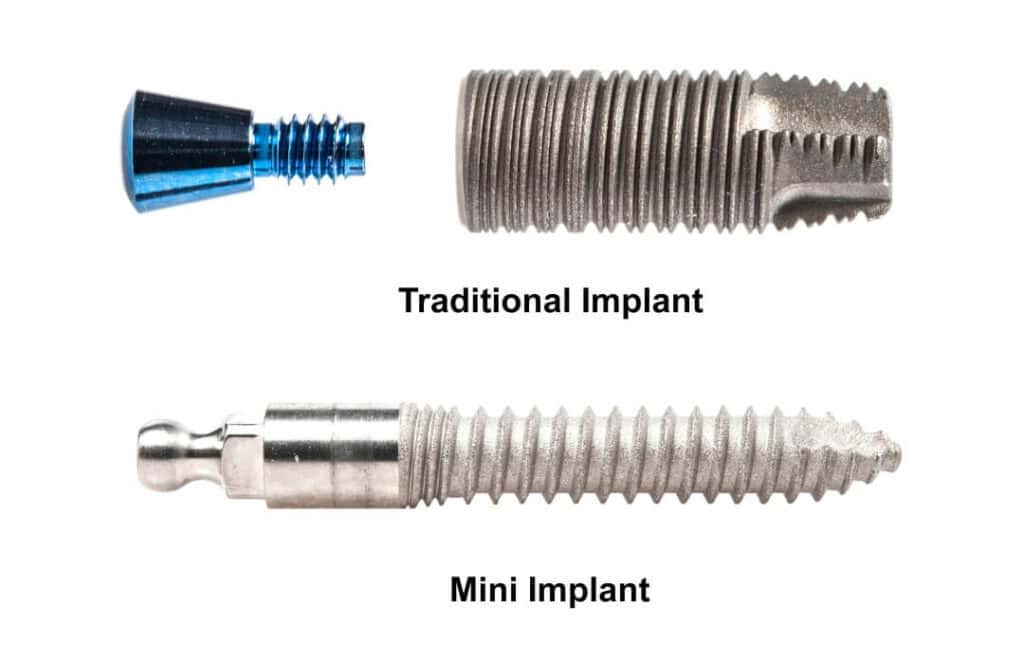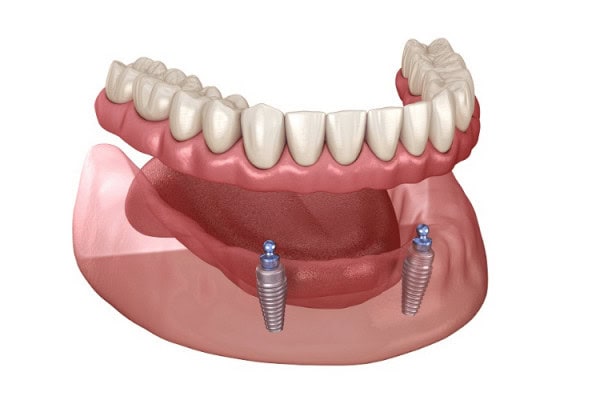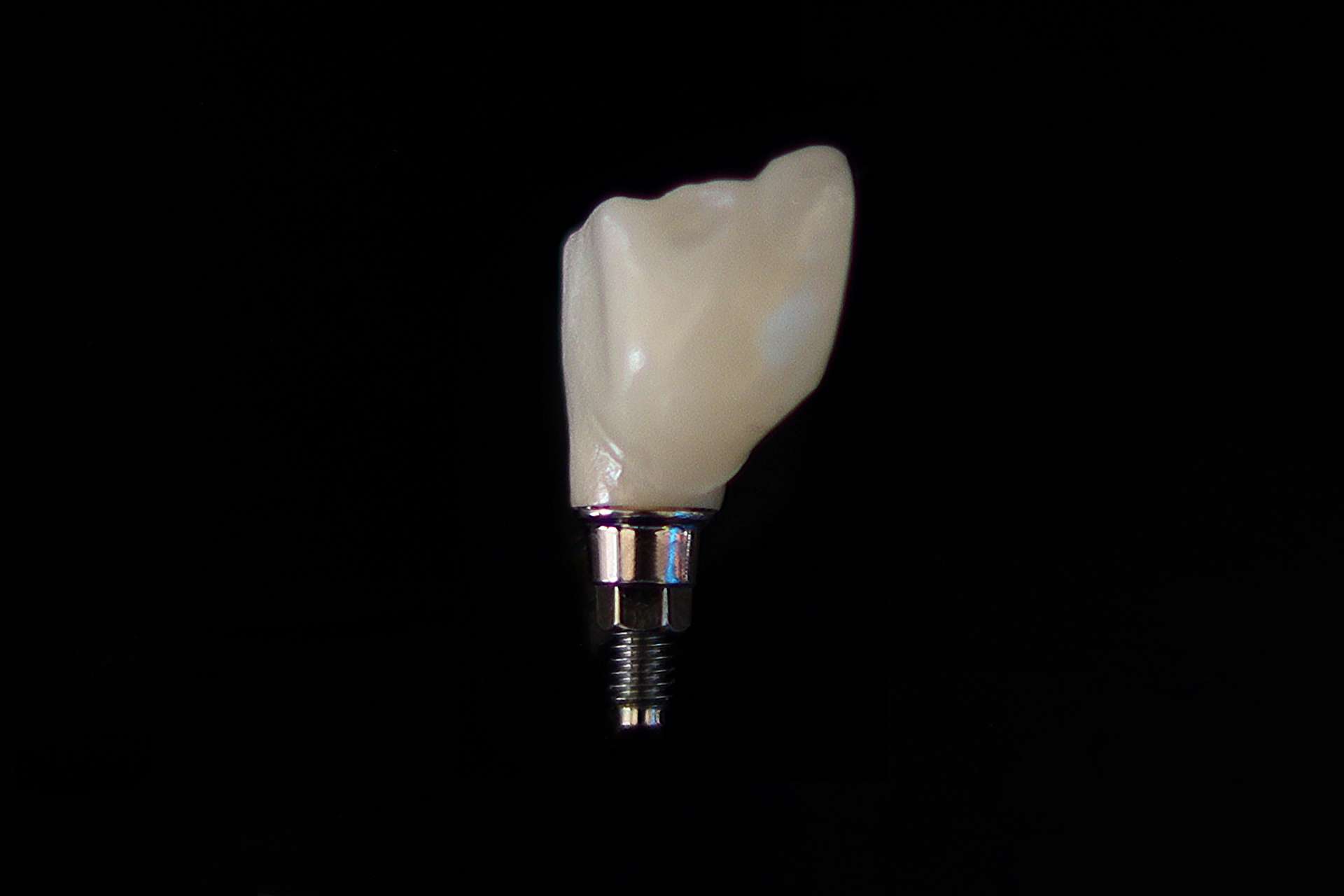Missing teeth don’t just affect how your smile looks – they make everyday things like eating and talking harder too. If you’re hiding your smile because of gaps or dealing with dentures that slip around, mini dental implants might help.
These smaller implants are less invasive than regular ones, heal faster, and usually cost less. They’ve become an option for people who were told regular dental implants wouldn’t work for them. Whether you need to replace a few teeth or want to stop your dentures from moving, mini implants could be worth considering.
This guide explains what mini dental implants are, how they work, and whether they might suit your situation.
What Are Mini Dental Implants?
Mini dental implants are small titanium screws that act like tooth roots in your jaw. Think of them as tiny anchors that hold your replacement teeth in place. Regular implants are 4-5mm wide, but mini implants are less than 3mm – about half the size and roughly as thick as a toothpick.
Being smaller is actually helpful. They can fit in tight spaces where regular implants won’t, while still giving you stable teeth you can eat and speak with confidently.

How Mini Implants Differ from Regular Implants
The biggest difference is that mini implants are made in one piece with a ball-shaped top that sits above your gum. Regular implants need separate parts put together over several appointments.
This simpler design means:
- Less cutting and drilling during surgery
- Usually no stitches needed
- Often done in one visit
- Quicker healing
- Lower cost
The downside is they’re not strong enough for every situation, especially back teeth that do heavy chewing.
The Good and Bad You Should Know
Why People Like Mini Implants
Mini implants are popular because the procedure is gentler. Less cutting means faster healing and less pain afterward compared to regular implants.
The treatment is usually simpler and cheaper, often done in one visit instead of several spread over months. Most people are back to normal activities the next day, which means less time off work.
What Are the Downsides?
Mini implants aren’t perfect for everyone. Because they’re smaller, they can’t handle as much chewing force as regular implants. This means they’re not good for replacing back teeth.
They also might not work if you’ve lost a lot of jawbone or if you grind your teeth heavily. There’s a slightly higher chance they could break compared to full-size implants.
Your dentist will check whether mini implants are right for your specific situation.
Success Rates and What Affects Them
Mini dental implants have success rates of 90-95% when done properly. Several factors affect how well they’ll work for you long-term.
- Your jawbone condition – Mini implants need less bone than regular implants, but you still need enough healthy bone to hold them firmly. Your dentist will take 3D scans to check if your jawbone is strong enough.
- Skilled placement – Because mini implants are so narrow, they need to go in exactly the right spot. Experienced dentists often use guides to make sure they’re placed correctly and avoid damaging nearby structures.
- Daily cleaning – Mini implants need the same care as your natural teeth. Brush twice daily, floss every day, and use any special cleaning tools your dentist suggests, like small brushes that fit between teeth.
- Regular check-ups – Most people need visits every 3-6 months so their dentist can check the implants and keep their gums healthy. Catching problems early makes treatment much easier.
- Following aftercare instructions – The first few weeks are critical for healing. This usually means eating soft foods, not smoking, and keeping the area very clean while your gums recover.
Mini implants work best for front teeth or holding loose dentures in place, where there’s less chewing pressure than on back teeth. Your dentist will tell you honestly whether mini implants are right for your situation or if regular implants would be better.
With good care and regular dental visits, mini implants typically last 10-15 years or more.
How Long Does a Mini Dental Implant Last?
With good care and regular dental visits, mini dental implants typically last decades. How long yours last depends on your oral health, how well they were placed, and how you look after them. Regular implants might last a bit longer because they’re bigger, but mini implants are still very durable when used in the right situations.
Are Mini Dental Implants Right for You?
Ideal Candidates
Mini implants work well for replacing smaller teeth, front teeth, or teeth in tight spaces. They’re especially useful if you’ve been told you don’t have enough bone for regular implants, since they need less bone to stay secure.
They’re great for people with loose dentures. If your dentures slip when you eat or talk, mini implants can lock them in place so you can eat your favourite foods without worrying about them moving around.
Health Requirements for Success
Mini implants work best when you have healthy gums and enough jawbone to hold them. While they don’t need as much bone as regular implants, there still needs to be enough there to keep them stable.
If you smoke, you’ll need to stop during treatment. Smoking makes healing much harder and reduces your chances of success.
Your dentist will check for:
- Healthy gums without gum disease
- Enough jawbone to support the implant
- Good overall mouth health
- No smoking (or willingness to quit)
If you have gum disease or other mouth problems, these need to be fixed first before getting implants.
The Mini Dental Implant Procedure

Your First Visit
Everything starts with a detailed check-up and 3D scans of your jaw. These scans show exactly where the implants can go and whether you have enough bone to support them.
Your dentist uses this information to plan your treatment, including:
- How many implants you’ll need
- Where they’ll go
- How long treatment will take
- Any other work you might need first
The Surgical Procedure
Mini implant surgery is much simpler than regular implant surgery and often happens in one visit. Here’s what to expect:
Your dentist will numb the area completely so you won’t feel anything. They’ll make small guide holes and carefully place the mini implants in your jawbone. In many cases, your new teeth can be attached the same day.
Because the procedure doesn’t need big cuts or stitches, it’s much gentler than regular implants. This means less pain and faster healing, often without needing bone grafts.
Because mini dental implants don’t require large incisions or stitches, the procedure uses less invasive techniques than conventional dental implants. This invasive alternative to traditional removable dentures means less discomfort and a quicker recovery time for you, often avoiding the need for painful bone grafts or bone grafting procedures.
Recovery and Healing
Most people are surprised how quickly they feel better after this gentler surgery. You’ll probably be back to normal activities the next day, though your mouth might be tender for a few days. Stick to soft foods for the first week.
While the implants take a few months to fully bond with your jawbone, you can usually use them right away. Your dentist will give you clear instructions on how to care for them and will be available to answer questions as you heal.
What Are Mini Dental Implants Used For?
Single Tooth Replacement
Mini implants work great for replacing smaller teeth, especially front teeth and premolars. Since they’re smaller than regular implants, they fit well in tight spaces or areas where you don’t have much bone.
Your dentist will attach a custom crown that matches your other teeth perfectly. It looks and feels much more natural than a removable partial denture.
Fixing Loose Dentures

This is where mini implants really shine. A few strategically placed mini implants can turn slippery, uncomfortable dentures into teeth that stay put.
This has been a game-changer for people who couldn’t eat their favourite foods or felt embarrassed about their dentures moving when they talked. If your dentures slip around and denture adhesive isn’t cutting it, mini implants could change your life.
Front Tooth Replacement
Mini implants are perfect for front teeth because:
- Front teeth have naturally narrow spaces
- They don’t need to handle heavy chewing like back teeth
- The bone in front is naturally thinner, which suits mini implants
- They look great and don’t affect nearby teeth
Multiple Teeth
Mini implants can support bridges or partial dentures when you’re missing several teeth. Whether this works depends on which teeth need replacing (they don’t use mini implants for molars), how much bone you have, how hard you bite, and your overall mouth health.
Your dentist will look at your specific situation to figure out the best approach.
Caring for Your Mini Dental Implants
Daily Care
Taking care of mini implants isn’t hard, but you need to be consistent. Just like your real teeth, they need regular cleaning to stay healthy.
Here’s what you need to do:
- Brush twice a day with a soft toothbrush
- Pay extra attention to cleaning around the implant
- Use gentle toothpaste that won’t scratch the crown
- Floss daily with special floss or tiny brushes
Your dental team will show you the best way to clean them and suggest the right products.
Regular Check-ups

Keeping your mini implants healthy long-term means good daily cleaning and regular dental visits. Professional cleanings help spot problems early, remove buildup you can’t reach, check that implants are stable, and make sure your gums stay healthy.
Most people need cleanings every six months, though some need them more often.
Warning Signs
Keep an eye out for these problems and call your dentist if you notice:
- Bleeding or swollen gums around the implant
- Implant or crown feeling loose
- Pain when you bite
- Your bite feeling different
- Bad taste or breath that won’t go away
Catching problems early usually means easier fixes.
What Do Mini Implants Cost?
Mini implants cost less than regular implants. In Australia, expect to pay $1,500 to $2,500 per mini implant, though your total cost depends on what you need.
What Affects the Price
Your actual cost depends on:
- How many implants you need
- Where they go in your mouth
- Any prep work needed first
- What type of replacement teeth you choose
- Whether you need extra procedures
Good dental practices will give you a clear breakdown of all costs upfront – no surprises.
Insurance Coverage
Most Australian health funds cover some dental implant costs, but coverage varies a lot. Some treat implants as major dental work, others as general treatment.
Many dental offices can process your insurance claim on the spot through HICaps, so you get your benefits immediately. Most accept credit cards, cash, and cheques for any remaining balance.
Payment Plans
Since implants are a big investment, most dental practices offer payment plans to make treatment more affordable. You can usually use your health insurance benefits, set up a payment plan that works for you, and get rebates from your health fund.
While mini implants cost more upfront, they often save money in the long run because they’re durable and work well. They’re also cheaper than regular implants, making them an option for more people.
Ready to Get Your Smile Back?
If you’re hiding your smile or dealing with loose dentures, mini implants might be the answer. The key is finding an experienced dentist who can properly check your case and decide if mini implants are right for you. A proper examination from our Balwyn dentist will help ensure you get the solution that’s right for you.
At your consultation, expect:
- A thorough check of your mouth and bone structure
- Detailed scans of your jaw
- Discussion about your concerns and goals
- Clear explanation of all your options
- Detailed cost breakdown
A good dentist will take time with you and explain everything clearly before any treatment starts.
Don’t let missing teeth stop you from living your best life. Mini implants have helped thousands of people get their smile and confidence back – they might be exactly what you’re looking for.




